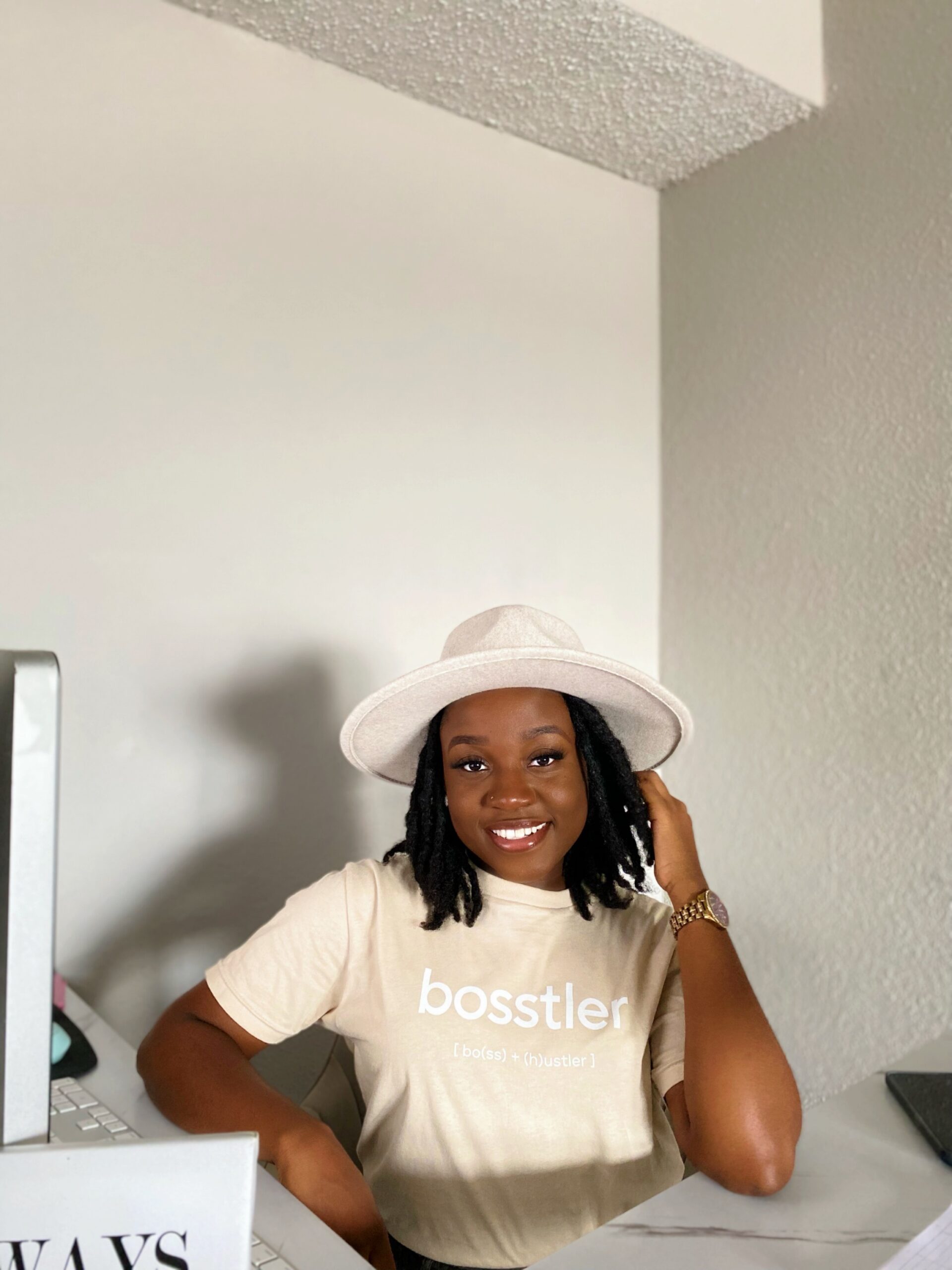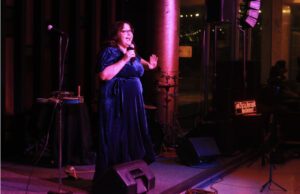
What was your upbringing like, and did your family members share creative passions?
I grew up in a music household, meaning music always plays in my home. On Saturday mornings, my mom woke me up to reggae, soca, or oldies music. I came from a family full of DJs, so I was surrounded by music as well.
Did a formal education in music ever appeal to you?
I wanted to be a teacher because I come from a background of teachers in my family. I didn’t know what kind of teacher I wanted to be, but I wanted to be a teacher. As a teenager, I got more into fashion and wanted to learn how to create clothing. My mom had sent me to Parsons Fashion School. I did the entire course up until the last day. I didn’t attend the final day, so I never completed it. I went back to college because I did a whole semester in a four-year college and then saw that college was not for me. I left college and was working for probably two years. My grandmother passed away and it pushed me to go back to a community college. I just decided to do media classes because I loved music and that’s what set me on my path.
What parts of college weren’t a good fit for you?
I was a young mom and had my son at 16. When I had him, I graduated from high school and went straight into college. I think I was doing like five classes at the time and I didn’t know how intense it is to take so many classes plus work a full-time job. At that time, I was working three jobs, while managing this course load. I also felt like I was still in high school, as in the mentality of a lot of the students, and it was really hard for me to make friends. I just feel like being in college and not really having a social life, definitely dampens the experience.
What made you transition back to college?
What made it easy for me was my Radio class, and that’s where I found my love for Radio. I was able to jump right into the mass communication classes, the video class, and the Radio class, so it kept me intrigued. However, it was definitely a transition to go back into a classroom setting. The radio class was more than just learning about the history of radio, but they had a program where you can actually sign up to do classes to learn how to work the board. They had an actual station on the FM band where we were able to take shifts and after you did a full semester of shifts, then you can host your own show. Literally, you are creating your own show from scratch. You have to create your own intro, you have to create your own promo. You have to put it together, you have to work the board, and find the guests, so you’re really the host, editor, and producer all in one.
What is the process behind “working the board”?
It’s like a mixer in a sense, a big console where you can control the volume, music, phone calls, etc. So if you want to have music playing, you can key it in. If you have a phone call coming in, you can do the phone call live on air. It’s a lot of manual work. The computer isn’t on automation, so you’re responsible for queuing in the music and there is a certain clock that you have to abide by. For example, if you’re doing a shift on the station, you’ll have to do PSA’s, the weather, and news at certain times each hour.
What was your first radio station and what separated it from other stations?
I’m from Guyana, so I wanted to have a Caribbean show, where I can be the source for the hot topics and music currently trending. I wanted to go against the norm. I wanted to play music that wasn’t in the top 40 on an FM station, which is why I named it Rebel Radio Connectz, because I felt like I was being a rebel by creating a show like this. I definitely felt like I brought a diverse show especially for it being an EDM station.
Once I graduated, I basically had to wrap up the show because you can only use the radio station if you’re enrolled in the school. I had to figure out exactly what I wanted to do. Podcasting wasn’t the big trend at the time, so I was trying to figure out where I wanted to take my show. There were other internet Caribbean stations, but the few that were in NYC were pirate stations.
I had one in mind that I really wanted to take my show to. I spoke with this guy who offered me an opportunity. He seemed like he was interested at the time since they were only doing shows with DJs. I knew that I was going to bring a different energy to the station, especially since being a female and the type of show I would’ve had. To make a long story short, once he had got my Instagram and I guess he saw how I looked, the whole dynamic of the conversation changed. When he tried to pursue me and I declined, he began ignoring my calls and texts. So I went to Guitar Center, bought one mixer, two mics, and a pair of monitors, and decided to start my own radio station.
How far have women come along in media?
For radio, I think it’s behind. Why is it that we hear the same people on the radio station from when we were younger? I think that it’s a lot of gatekeeping and it’s really hard to break into radio. I actually started losing my love for radio because, not only did it start to feel like a job, I just felt like I wasn’t getting the opportunity that I felt like I deserve. There were a lot of people who felt this way as well, especially when I started working at Entercom, which is a radio station in New York now known as Audacy. I was a part of the street team and we all wanted to elevate and move up in the company. However, the only opportunity that was given to most of us street teamers were either to work the board, if we got promoted or to go in sales. To even get to a board-op position was challenging. You had to either have to be cool with the Program Director or hope that one of the upper-ups vouch for you. So I just feel like there’s not a lot of growth in the radio world at all.
What did you do in your work with the street team?
The official title is Promotions Assistant. We’re basically doing brand awareness for the station. Entercom had about six different stations, so we would have to go to different locations and promote the particular station that day. We would have something for bystanders to engage with and they would receive an incentive with the station’s branding on it for participating. After a year in that gig, I was having trouble with child care for my son. So I had to make the decision whether I will stay at this job or I’ll do what I do best and be a mom. So I did what I did best, and I took a leave of absence. I went to work at Chipotle for about a month and then fell into a depression because I didn’t know what I wanted to do anymore. I didn’t want to go back to Entercom or go back to radio in general, so I felt like I was at a dead end. But then everything changed once I attended the VP Records event.
How did that initial event go with VP Records?
The day of the event, a family member of mine technically forced me to go. I decided to put my feelings aside and attend the panel event. There was a girl there who was a project manager for the company at the time and I approached her and asked her if she needed a volunteer to help her out. We exchanged contact information and she called me into the office the following week. She asked if I would be open to working as her intern and I started doing that for about five months until I got promoted to a full-time position.
Are there any upcoming events you’re excited for this year?
Well, I actually am planning something big for next year that I am currently working on. In the meantime, I am helping others with their events for the remainder of this year. I also want to take the New Rising Artist Showcase to another city, so I’m looking at other cities to take this too as well. For next year I also want to do more business brunches and all different kinds of events to really tap in with the city. My biggest thing is to network to grow and build with my people. You know, I still think I’m an underdog, so I just want to help other people who are like me get to the top.
